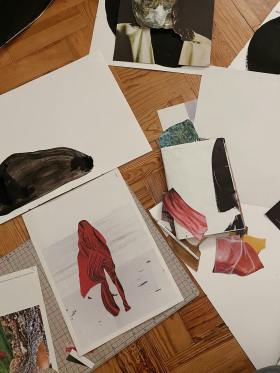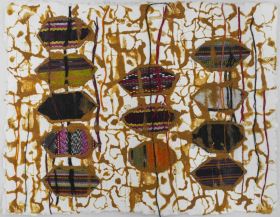“I’ve had enough food to last me for a week!” was my Grandmother’s annual litany as she neatly set down her knife and fork after Christmas dinner. Every year my brother and I would vigorously lobby for her to be taken at her word and given nothing but water until New Year’s Eve. I hasten to add that we were never successful.
We are all of us guilty of falling back on some comfortable platitude or other and none more so than actors, whose job it is to say things that are untrue. In interviews, actors will often use words like ‘privilege’ and ‘honour’ when referring to directors or each other. The implication is that their work goes beyond mere labour and is, in some way, rarefied. An impression confirmed by that other great interview cliché: “Applause is our wages”.
It is pretty hard to sympathise with any actor who comes out with this little gem. If an established (rich) actor says it then it sounds smug and self-satisfied and if an emerging (not yet rich but obviously on the right track if being interviewed) actor says it then it sounds pious and insincere. I suspect that, like my Gran, few of those who trot out this particular piece of banality would care to be held to it.
Applause for wages? Great news for Sir Cameron Mackintosh and the perfect response for Culture Secretary Andy Burnham the next time he is harangued over government funding for the arts. Why stop there? What a perfect solution to the credit crunch for all employers! No need to bother one’s head with tiresome salary negotiations when a rousing round of applause will do the trick. Unemployed youngsters should be stripped of their knives, issued with tubs of hand cream and sent forth to schools and hospitals throughout the land to clap beleaguered nurses and teachers into target exceeding productivity.
It is all too easy for a desk drone to deride the work of an actor in these easy, lazy terms: delicious dollops of free time between jobs and days free during the run of a play sound idyllic when you’re wedged into office drudgery, but it’s a different story when mortgage payments are due regardless of whether you’re working.
The vast majority of actors today are unemployed at any given time. At the height of the Roman Empire, actors were foreigners, captives or slaves with whom nobody of rank would associate. Tradesmen’s guilds performed the mystery and miracle plays in medieval England: members had to contribute to costs regardless of their income and, whilst the actors were paid, there were fines for bad acting or forgetting your lines. In Shakespeare’s time performers required the patronage of rich noblemen to avoid arrest for vagrancy when they went on tour and it seems safe to assume that Bottom the weaver, Snug the joiner and Snout the tinker weren’t about to give up their day jobs. Cromwell bankrupted a generation of actors by refusing to allow the theatres to reopen following the English civil war and Nell Gwyn is still famous after 350 years because she was the very first female star of the stage.
Applause is more than a transaction paid by audiences to actors. It is the ritual by which hitherto silent spectators become active in an entertainment they have been a passive part of: a process of transition from the fictional world of the stage back into reality. This process acknowledges and concludes a collective experience and isn’t necessarily for the performers. It is a way for emotion to be conveyed within a large group, emotion that isn’t always positive. The WI famously indicated its disapproval for Tony Blair by slow clapping his speech to its conference in 2000. David Beckham and Wayne Rooney have been sent off for sarcastically applauding refereeing decisions that went against their teams: their clapping seemingly intended to galvanise supporters against the official.
19th century Paris was home to the corrupt industry of competitive clapping. Organised groups of ‘claqeurs’ planted professionals in audiences who could make or break a show for a price. This practice itself was nothing new: comedy competitions in ancient Greece were often won by contestants who infiltrated the crowd with paid supporters.
In spite of all these caveats, anyone who has ever been clapped – even if it is only at school sports day or a tawdry work do – knows that applause is intoxicating. It raises self-esteem, lifts spirits and makes your heart beat faster as if trying to match the rhythm of the clapping. Nobody, Luvvie or Granny, has ever said: “I’ve had enough applause” and really meant it.




